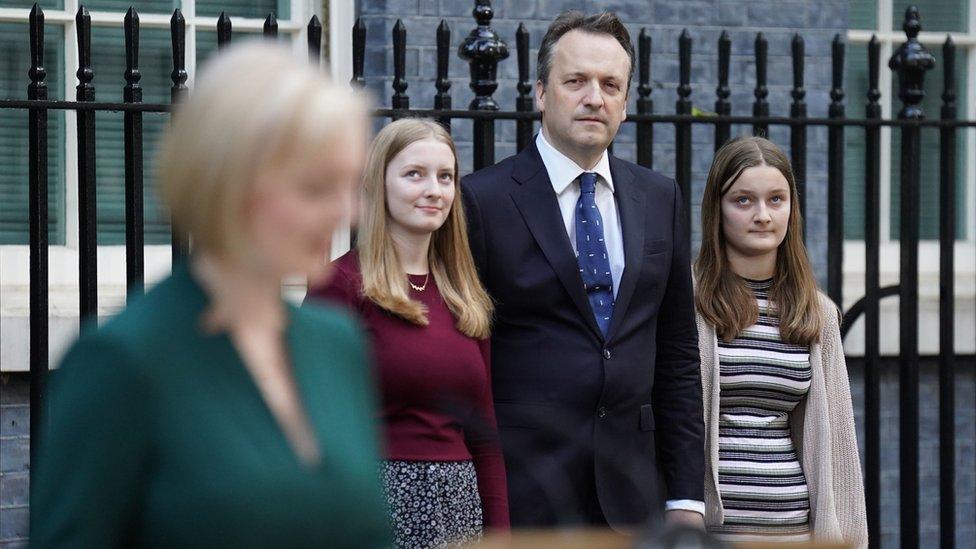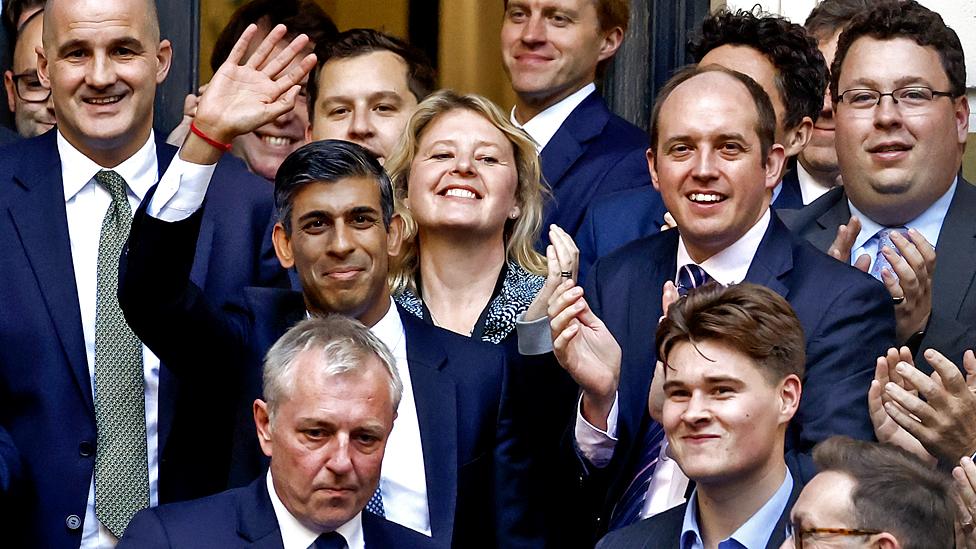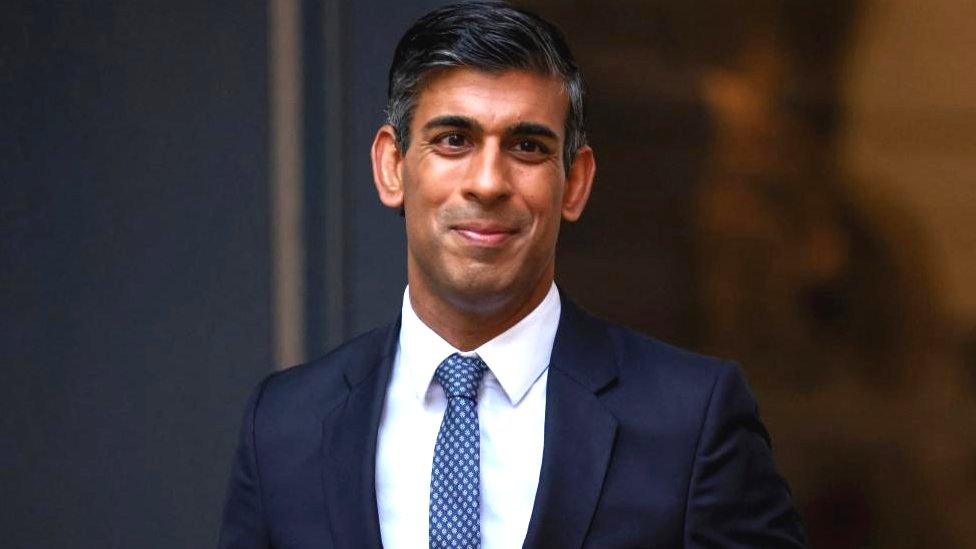Liz Truss defends tax-cutting goals as she bids farewell
- Published
Watch: Outgoing PM Liz Truss vows "brighter days lie ahead"
Liz Truss has defended her lower-tax vision for the UK, before bowing out as the shortest-serving British prime minister ever.
In an unapologetic farewell speech, she urged her successor Rishi Sunak to be "bold" in a bid to boost the economy.
She said the UK "cannot afford" for government spending to take up an "increasing share of our national wealth".
And she insisted "brighter days lie ahead" for the UK.
Flanked by her husband and children, Ms Truss said she would go back to being a backbench MP for her South West Norfolk constituency.
Mr Sunak has now been formally appointed prime minister by the King, following his victory in the Conservative leadership contest.
Ms Truss announced her resignation last week after just 45 days in office, after big tax cuts in a hastily-assembled mini-budget prompted financial turmoil.
After initially defending her agenda, she later abandoned almost all of it in a bid to calm markets but saw support from her own MPs ebb away.
But she struck a defiant tone in her speech in Downing Street, adding: "I'm more convinced than ever that we need to be bold and confront the challenges we face.
"We simply cannot afford to be a low-growth country where the government takes up an increasing share of our national wealth."
Quoting the Roman philosopher Seneca, she added: "It's not because things are difficult that we do not dare, it's because we do not dare that they are difficult."
She also pointed to her reversal of April's National Insurance rise and her plan to limit energy rises as examples of successes during her short time in office.
She also urged Mr Sunak to continue British support for Ukraine, adding the country "must prevail" in its "brave fight against [Vladimir] Putin's aggression".

Ms Truss's delivered her farewell speech in front of husband Hugh O'Leary and daughters Frances and Liberty
Her departure brings to an end a turbulent and at times chaotic premiership, marked in its final days by a series of humiliating policy reversals.
Her initial pick as chancellor, close ally Kwasi Kwarteng, delivered a mini-budget only weeks after taking office in which he announced the biggest package of tax cuts in 50 years.
The plans, which had not been assessed by the government's fiscal watchdog, spooked investors and led to a steep rise in the cost of UK government debt.
Ms Truss, who had argued during her Tory leadership bid that the UK tax burden had held back economic growth, at first defended her approach but later fired Mr Kwarteng.
His replacement as chancellor, Jeremy Hunt, then abandoned almost all of the tax cuts in a bid to stabilise the financial markets.
The move was welcomed by investors but badly undermined Ms Truss's political credibility, and she faced calls to quit from her own MPs.
Her successor Mr Sunak, the UK's third leader in seven weeks, now faces the task of steering the UK through a period of economic crisis marked by low growth and high inflation.
He is expected to begin appointing his cabinet later, before taking Prime Minister's Questions in Parliament on Wednesday.
Related topics
- Published24 October 2022

- Published25 October 2022
